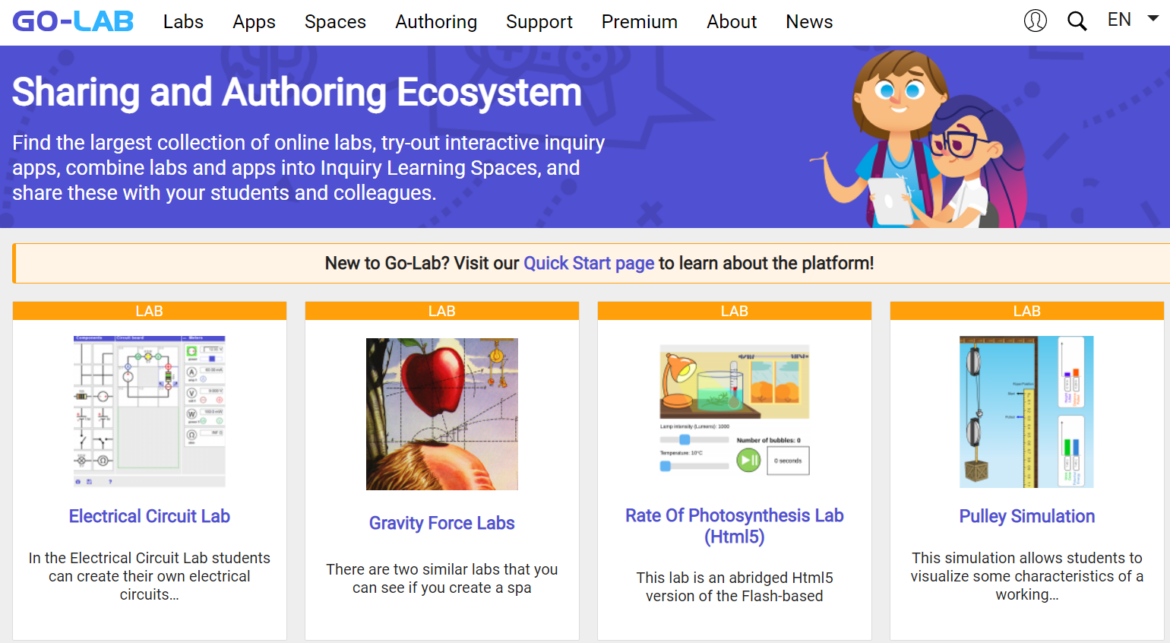Did you know you can improve the success of inquiry learning efforts with digital learning environments? Researchers report that educational technology tools can enhance different phases of inquiry-based learning. These inquiry phases constitute the inquiry cycle. Let’s review the results of the research and explore some suggestions that address the use of digital tools to support inquiry cycle phases.
Note: Content in this blog entry references a paper appearing in ScienceDirect. The paper is “Phases of inquiry-based learning: Definitions and the inquiry cycle.” Authors include Margus Pedaste, Mario Mäeots, Leo A. Siiman, Ton de Jong, Siswa A.N. van Riesen, Ellen T. Kamp, Constantinos C. Manoli, Zacharias C. Zacharia, Eleftheria Tsourlidaki. Read the CC-BY-NC-ND licensed paper online.
Why Is Inquiry Learning Effective?
If you read John Hattie, you’ll see that inquiry based teaching has an average effect size of 0.46. The Visible Learning Meta X database describes it in this way:
Inquiry-based teaching is an educational practice. Students behave as scientists or philosophers. They generate questions and seek to develop answers through the accumulation of evidence. This could include asking questions and solving problems. It often includes procedures such as small-scale investigations and practical projects.
Let’s explore how inquiry-based learning happens:
- Students follow methods and practices similar to those of professional scientists. They do this to construct knowledge.
- Learners formulate hypotheses and then test them.
- They test hypotheses by conducting experiments and/or making observations.
This is not dissimilar to the Scientific Method, as shared in a previous TCEA blog entry, Interactive Science: Labs to Master the Scientific Method.
Problem-Based Learning, Project-Based Learning, and Design Thinking Learning are variants of inquiry learning.
What Are the Five Phases of Inquiry?
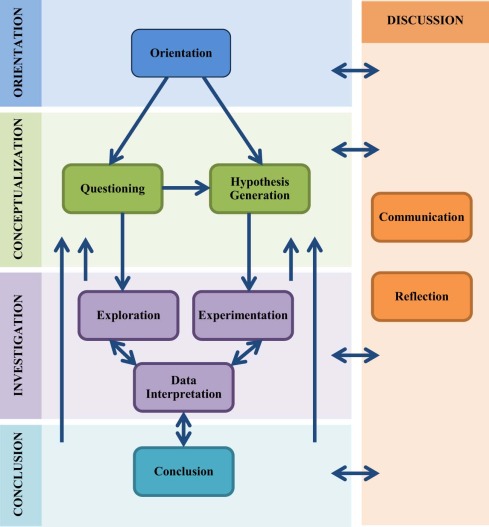
The five phases of inquiry researchers identified include:
- Orientation
- Conceptualization, which includes questioning and hypothesis generation
- Investigation, which includes exploration/experimentation leading to data interpretation
- Conclusion
- Discussion, which includes reflection and communication
In total, the five phases with their subphases add up to twelve possible components. You can see them articulated in the diagram shown above. Elaborating on that process, you can see this diagram from researchers below:
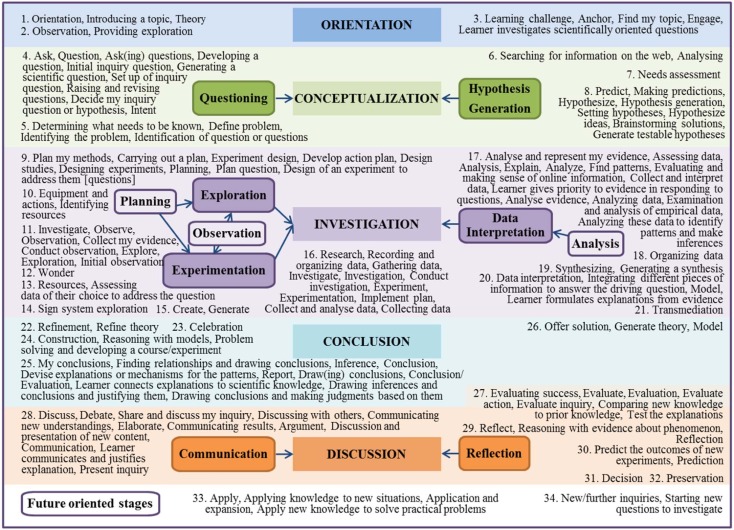
Scaffolding Inquiry Learning with Technology
The authors in the study cited two amazing tools you may be unfamiliar with. Those include:
1. The Go-Lab Ecosystem
The intent of the Go-Labs is to assist teachers in finding online labs that enrich learning.
Online labs provide your students with the possibility to conduct scientific experiments. These experiments occur in an online environment. Some labs offer an opportunity to experiment with real equipment from remote locations.
Virtual labs simulate the scientific equipment. Data sets present data from already performed lab experiments. Combine labs with dedicated Apps to create Inquiry Learning Spaces (ILSs).
Go-Lab organizes the labs by age range, lab types, big ideas of science, and/or subject domains. You will find anything from astronomy to geography, math, physics, and technology. These are also available for students aged <7 years to >16 years.
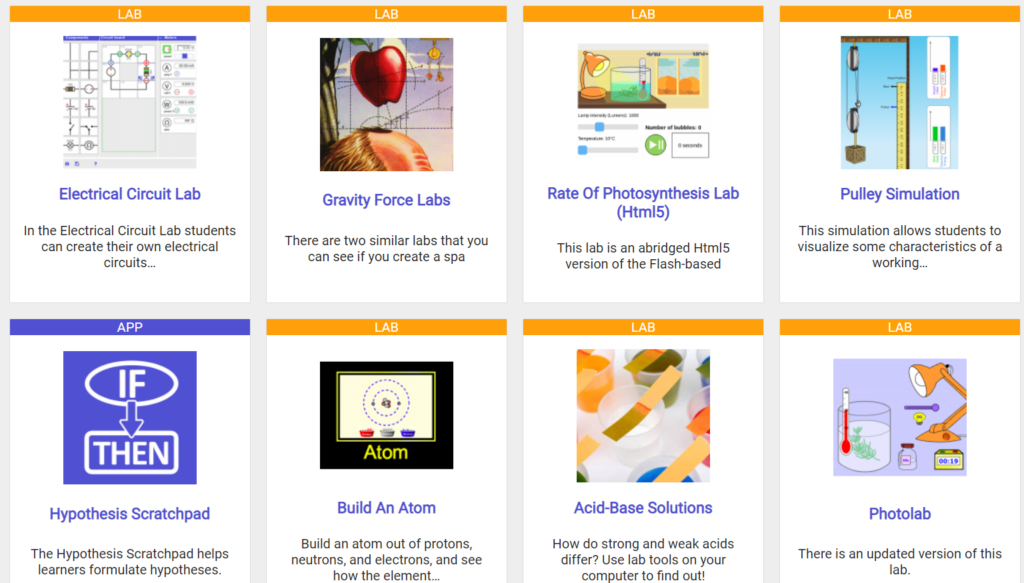
At Go-Lab, per their website, you will find:
- Online labs: These digital simulations often mimic laboratory situations where students can perform experiments digitally. The Go-Lab Ecosystem provides the most extensive collection of over 600 online labs, coming from resources from all over the world. You can access the labs through the main navigation on top of the page (“Labs”) and search labs using the filters on the right of the page.
- Inquiry Learning Apps: These small digital tools guide students through the inquiry learning process and assist them at every step. For example, there are tools helping to formulate hypotheses, design experiments, visualize experiment data, draw conclusions, and many more. Learning analytics and collaborative learning tools are available as well. You can access the list of apps through the main navigation on the top of the page (“Apps”).
- Inquiry Learning Spaces (ILSs): These digital spaces can be created with the help of the Go-Lab Ecosystem. Each ILS represents a structured learning scenario helping students discover a certain STEM topic through a process of inquiry learning. An ILS typically contains an online lab, several inquiry learning apps, and any learning content of your choice. You can find over 1,000 ready-to-use ILSs using the main navigation on top of the page (“Spaces”).
Many aspects of the Inquiry Learning Spaces are available under Creative Commons Attribution-Noncommercial license.
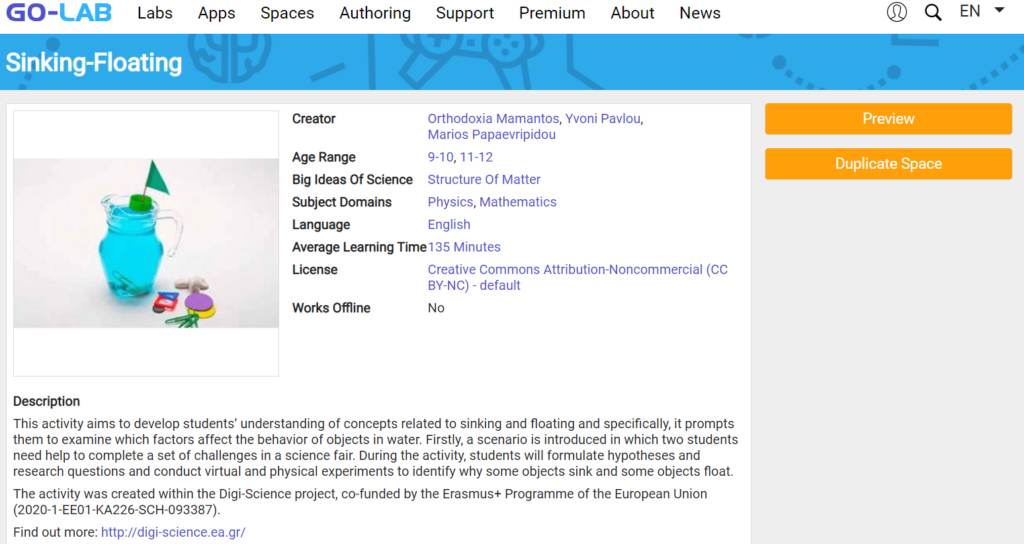
2. Ark of Inquiry
The Ark of Inquiry seeks to promote scientific interest through inquiry learning. There are ample resources on their website, along with an hour introductory video:
Their website shares this goal:
The overall aim of the Ark of Inquiry project is to create a “new science classroom.” A science classroom that provides more challenging, authentic and higher-order learning experiences. One that gives students the chance to engage in scientific practices and tasks. Students use the discourse of science and work with scientific representations and tools.
Ark of Inquiry makes some materials available as both webpages and Adobe Portable Document Format (PDF) files.
- Materials for teachers (Get PDF)
- Materials for teacher educators and researchers (Get PDF)
- Materials for scientists (Get PDF)
- Materials for parents (Get PDF)
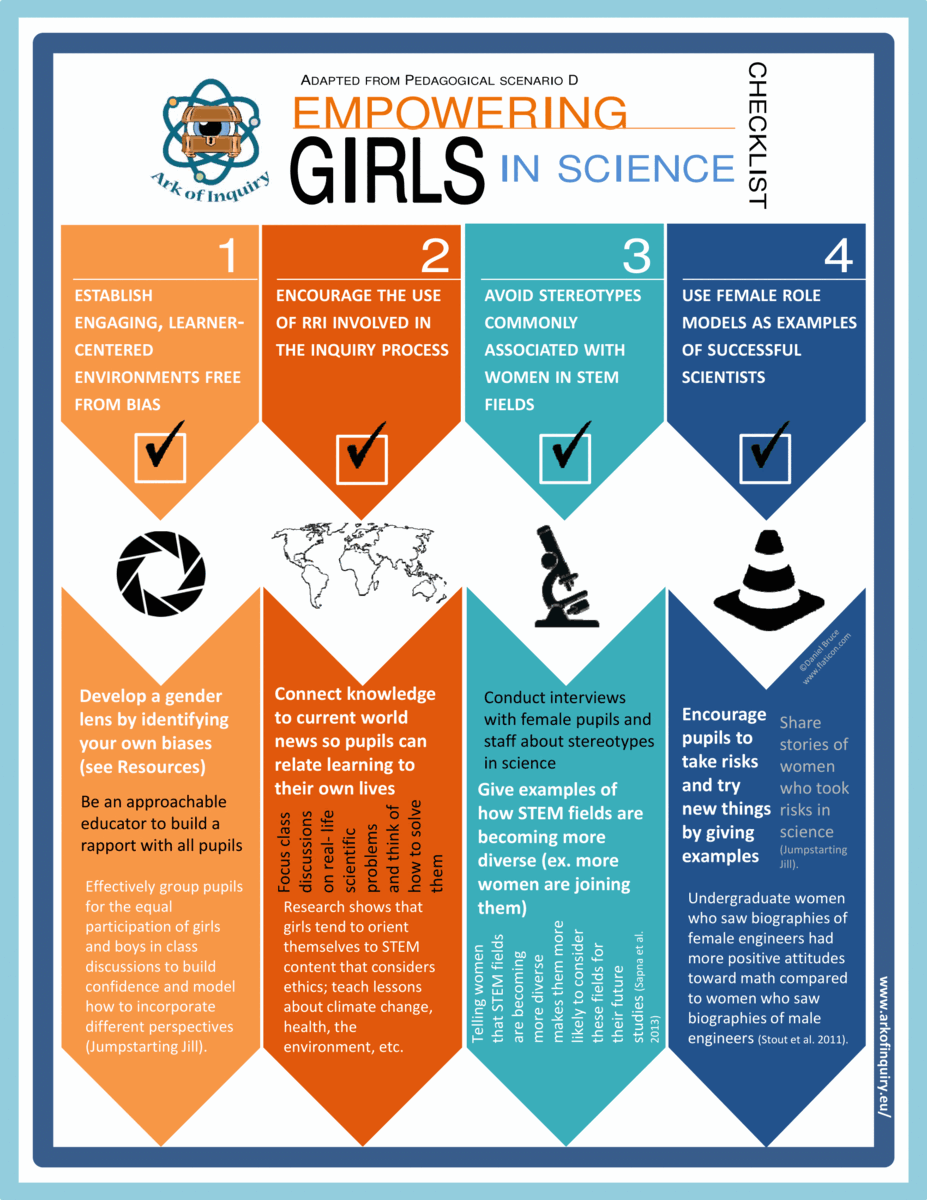
Inquiry Learning
You can find several models for using inquiry learning in your classroom, but these websites (e.g., Go-Labs and Ark of Inquiry) offer two great starting points for leveraging technology to support inquiry learning.
Feature Image Source
Screenshot by author

